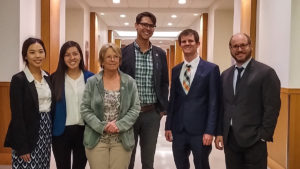Law enforcement is increasingly using geofence warrants—court orders that compel companies to turn over location data for devices within a specified area and timeframe—to aid in criminal investigations. While geofence warrants can be valuable tools, they raise significant concerns about privacy and the potential for misuse.
Although various courts have grappled with the use of geofence warrants in law enforcement investigations, no clear consensus has emerged. Some courts view geofence warrants as inherently unconstitutional, while others argue that they do not constitute searches under the Fourth Amendment.
Legislators cannot wait for the courts to define the boundaries through case law; proactive legislation is needed to establish clear and enforceable guidelines. To that end, TLPC has developed a model policy framework that states can implement to govern the use of geofence warrants. We have done so at the request of the Center for Democracy & Technology (CDT), a leading nonpartisan, nonprofit organization fighting to advance civil rights and civil liberties in the digital age. Although TLPC consulted with CDT while developing this policy, the views expressed in this document are solely those of the TLPC staff members who created it and do not represent the views of CDT.
Our model policy provides a comprehensive framework to address concerns surrounding geofence warrants. It seeks to strike a balance between the vital need to safeguard civil liberties and the legitimate use of geofence warrants as an investigative tool of last resort.
Highlights of our proposal include:
- Strict limitations on when geofence warrants may be used, limiting their use to the most serious crimes only;
- Robust exhaustion requirements which require law enforcement to demonstrate that traditional investigative methods have either failed or would be futile;
- Enhanced judicial oversight throughout the entire geofence warrant process—from gathering location data from providers to de-anonymizing the owners of specific devices; and
- Carerful tailoring factors to minimize privacy intrusions on innocent persons who happen to be in the vicinity of where a crime has been committed.
The report was written by TLPC student attorneys Sarah Baldwin, Zoe Leonore Glepa, and Victor Laudano under the direction and supervision of the Clinic’s director, Vivek Krishnamurthy. The full report is available to download at the link below.

